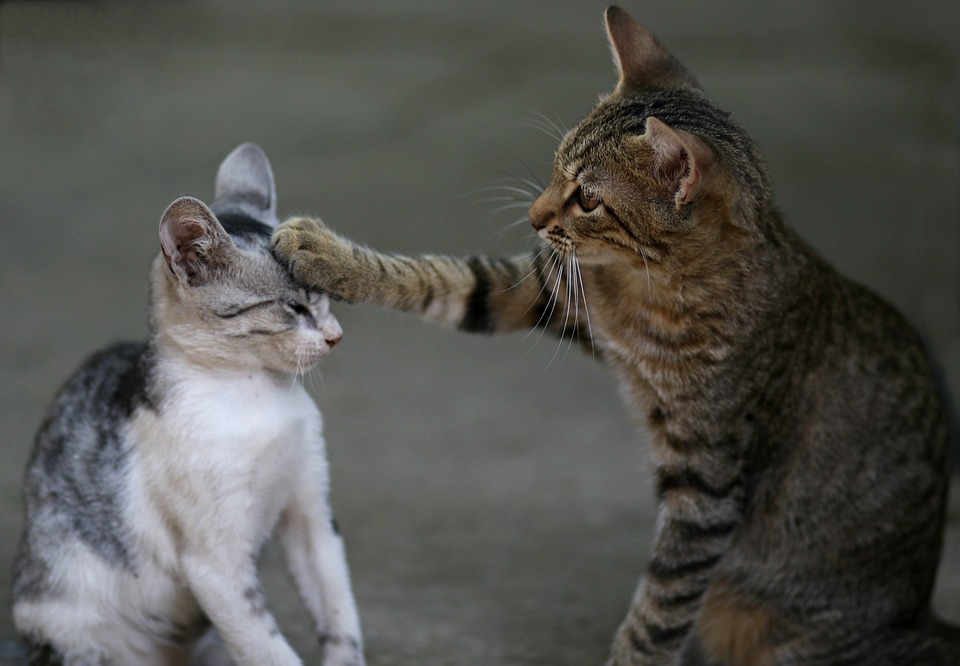Cats with compromised immune systems are more susceptible to various health issues, including the development of ringworm. As a pet owner, it is crucial to recognize the signs of this fungal infection and take appropriate measures to address it promptly. In this article, we will delve into the topic of ringworm in cats with compromised immune systems, discussing its symptoms, treatment options, and preventive measures.
Ringworm, also known as dermatophytosis, is a highly contagious fungal infection that affects the skin, fur, and occasionally, the nails of cats. While healthy cats can usually fight off the infection with their robust immune systems, those with compromised immunity, such as senior cats or those with underlying health conditions, are more susceptible to contracting ringworm.
Recognizing the Signs of Ringworm
1. Hair Loss and Bald Patches: Cats with ringworm may experience hair loss in localized areas, resulting in bald patches. These patches are often accompanied by redness and inflammation.
2. Dull and Brittle Fur: The infected area may have fur that appears dull, dry, or brittle. The fur may break easily or have a stubbly appearance.
3. Itchy and Irritated Skin: Cats with ringworm may exhibit signs of itchiness, scratching, and general discomfort. They may repeatedly lick or bite the affected area, leading to further irritation.
4. Circular Lesions: Ringworm lesions typically have a round or oval shape, appearing as raised, crusty, or scaly patches on the skin. These lesions often grow in size and can be found on any part of the cat’s body.
5. Secondary Infections: Cats with compromised immune systems are more prone to developing secondary bacterial infections due to ringworm. Look for signs of pus, oozing, or foul odor emanating from the affected area.
Addressing Ringworm in Cats with Compromised Immune Systems
1. Consult a Veterinarian: If you suspect your cat has ringworm or if they exhibit any of the aforementioned symptoms, it is crucial to seek veterinary assistance. A veterinarian will perform diagnostic tests, such as a Wood’s lamp examination or fungal culture, to confirm the presence of ringworm.
2. Medication and Treatment: Treatment for ringworm in cats with compromised immune systems typically involves a combination of oral antifungal medications, topical treatments, and medicated shampoos. Follow the veterinarian’s advice on dosage and duration of treatment.
3. Isolation and Environmental Cleaning: It is essential to isolate the infected cat from other pets and clean their living environment thoroughly. Vacuum carpets, furniture, and bedding regularly, and disinfect surfaces with appropriate antifungal products to prevent the spread of the infection.
4. Boosting Immune System Health: Enhancing your cat’s immune system can help them fight off ringworm and other infections more effectively. Ensure a balanced diet, provide regular exercise, and consider immune-boosting supplements or medications as recommended by your veterinarian.
Frequently Asked Questions (FAQs)
Q1: Can humans contract ringworm from infected cats with compromised immune systems?
A1: Yes, ringworm is zoonotic, meaning it can be transmitted between animals and humans. Take precautions, such as wearing gloves and practicing good hygiene, when handling infected cats.
Q2: Are there any natural remedies for treating ringworm in cats with compromised immune systems?
A2: While natural remedies may offer some relief, it is crucial to consult with a veterinarian for proper diagnosis and treatment. Natural remedies should only be used as a complementary approach and not as a sole treatment option.
Q3: How long does it take for a cat with a compromised immune system to recover from ringworm?
A3: The duration of recovery depends on various factors, including the severity of the infection, the cat’s overall health, and the effectiveness of the treatment. It may take several weeks to a few months for a cat with a compromised immune system to fully recover from ringworm.
Q4: Can I prevent ringworm in cats with compromised immune systems?
A4: While complete prevention may not be possible, you can minimize the risk of ringworm by maintaining good hygiene, keeping your cat’s living area clean, and ensuring their immune system is as healthy as possible through proper nutrition and regular veterinary care.
Conclusion
Ringworm in cats with compromised immune systems requires prompt attention and appropriate treatment. By recognizing the signs and taking necessary measures, you can help your furry friend recover from this fungal infection and minimize the risk of transmission to other pets or family members. Always consult with a veterinarian for accurate diagnosis and guidance regarding the best course of action for your cat’s specific situation.








